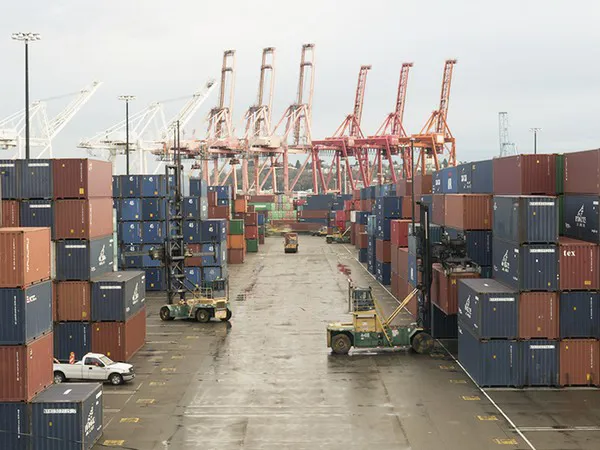Vanguard International Group recently published a piece commenting on global trade and how political uncertainty and natural events have an impact on the produce industry. Below is the article that Vanguard published, along with a link:
In the fresh produce industry, unpredictability is a given. Early frosts, late frosts. Too much rain, not enough rain. Nature is unpredictable. Politics can also prove to be an unpredictable factor through levied tariffs.
Let’s take a look at how these unpredictable factors may affect the demand of fresh produce in the global market. When it comes to the war on trade, a country may be frustrated with tariffs imposed on their exports by another country, and then retaliate. One strategy for this in the fresh produce industry is to heighten import inspections. How does this work? One country applies an extremely rigid inspection protocol on another country’s imported produce, which may cause imported cherries, for example, to sit for 7 to 10 days awaiting inspection. With limited cold storage to keep these cherries refrigerated consistently, they would sit in the heat and other unfavorable conditions, becoming no longer fresh. By the time the receiving country manages to inspect each and every single piece of fruit, they’re not viable anymore, get rejected, and ultimately thrown away. This can be known as a deliberate slowdown and has a ripple effect all the way back to the importer, the shipper, the packer, and the grower who becomes then unwilling to take the risk of sending fruit to a market that might hold it for too long.
All of a sudden, there is a shift in the market and demand for fresh produce that is required from another global market.

As for nature, take a look at this historical example. In the late 1990s, California citrus growers were devastated by the unpredictable forces of nature. For a number of seasons, they had near back-to-back freezes, which meant their citrus wasn’t available to export. Until this point, California was leading in the citrus market. Everyone wanted their citrus crop! However, when California stopped producing, the world didn’t just stop eating oranges – they looked elsewhere to find them. Importers looked around to see what else they could find. Were they successful? Absolutely. They found citrus in Spain, Turkey, Australia, and other origins. With California benched, producers in both the Northern and Southern Hemispheres were suddenly in the game, and new supply chains were created.
What we find most fascinating is that regardless of tariffs, trade interruptions, natural disasters, or unpredictable outcomes, farmers continue to farm and marketers continue to market their fruit. They find ways to keep producing, exploring new markets, and pivoting to re-engineer their orchards. Vanguard will be there when they do.
Vanguard has always focused efforts on securing supply from our global growing and supply base. We have product availability and consistent supply from Australia, China, Europe, New Zealand, South America, South Africa, Mexico, and the United States. We have on-site sales teams or inspection sites in most of these regions as well, so buyers can speak directly to the source. Unpredictability or not, we plan to execute on our promise of reliability in this volatile market we all have grown to love.
For more information:
www.vanguardteam.com
